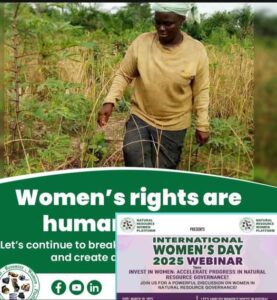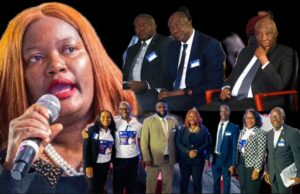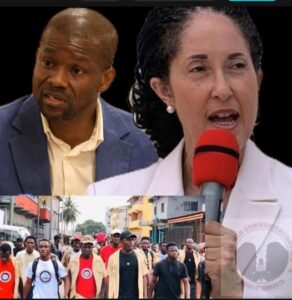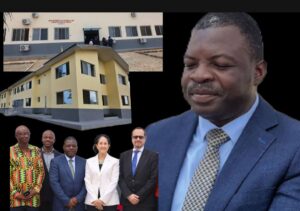“Hugely Disappointed”
Several At-Risk Youths At the Blink of Boycotting 2023 Elections
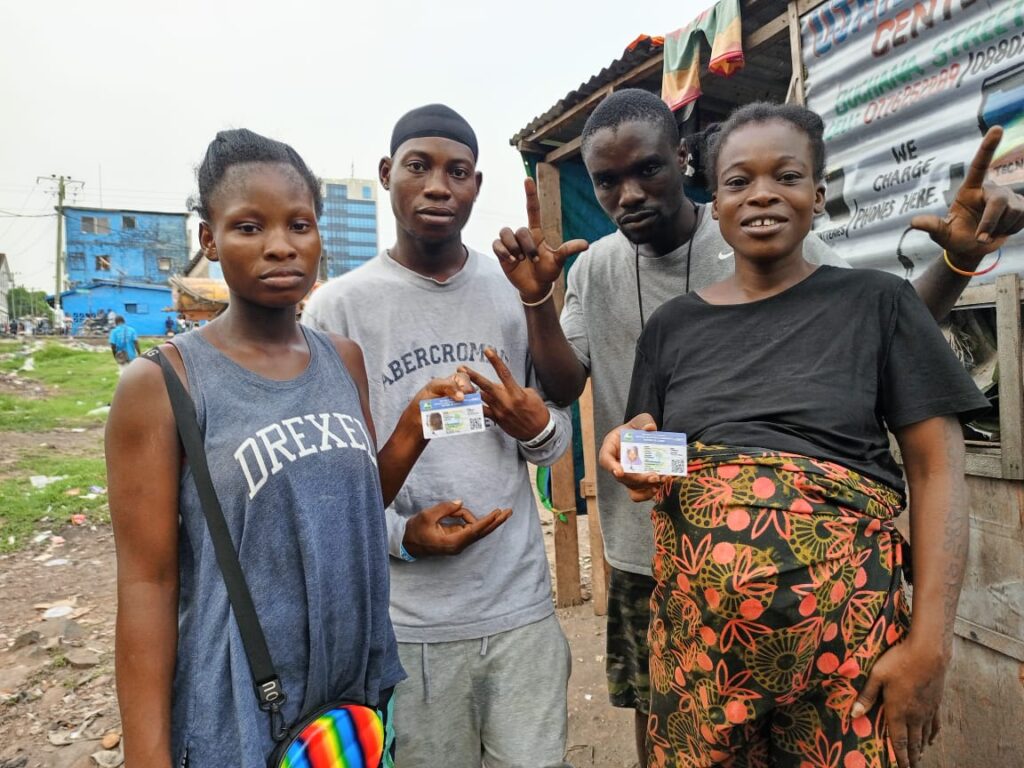
By: Laymah Kollie
Liberia-It appears that dozen of disadvantaged youths may not participate in the October 10, 2023 Polls owing to what they termed as disappointment in the CDC-led Government.
The group of young people expressed dismay over the government’s action of neglect and rehabilitation for integration into society during the government’s six (6)years rule.
WOMEN’s TV-Liberia recently conducted an investigation on the involvement of disadvantaged youths in the electoral process of Liberia. During visits at different places (Ghettos) towards the close of Phase one Biometric Voters Registration exercise, disenchanted youths (Zogos) told our Reporter that they were only obtaining voters registration cards and would not vote on elections day. “We only registered because the card is important but for this election I don’t think we will vote because nobody is doing anything for us,” Fitzie Carter, a disadvantaged youth from the Center Street ghetto asserted.
Preliminary stats from the National Elections Commission on phase one BVR indicated that a total of 1.4M people registered across Bomi, Gbarpolu, Grand Bassa, Grand Cape Mount, Margibi, and Montserrado Counties registered.
Speaking further, the youths named rehabilitation centers, Technical and Vocational Education and Training (TVET) Program and jobs as some major failed promises by the government which did not come to fruition. They hoped the government had explore more efforts to ensure their proper reintegration into the Liberian Society. They highlighted that drugs and other narcotics substances are destroying a larger spectrum of the population yet leaders are playing blind to the menace.
They frowned on being used by politicians to achieve selfish interest and political offices. “This election year, no one will use us for their selfish aim and make their family rich then they leave us in abject poverty”, Johnson Barclay of Chugbor Ghetto asserted.
Chugbor Ghetto, is located on the Old Road, District #10, Montserrado County, comprising about 200 disadvantaged youths, and the Center Street Ghetto also known as Big Boys Club (BBC) hosts approximately 500 At Risk Youth, with BBC being a meeting point for the drug addicts.
According to the 2022 statistics from the National Steering Committee on the Rehabilitation of At-Risk Youth in the country, there are an estimated 150,000 drug users and over 10,000 ghettoes across the 15 counties of Liberia.
“Actually for me, I am from a poor family and i can’t vote for people who are enjoying and have no time for us. My family and l are suffering, nothing to do so we can’t waste our time voting for somebody. I am not voting. I just got this card because I am a citizen and it is good to have it,” Moses Dolo of the same Chugbor Ghetto claimed.
Like Johnson and other At- Risk Youths on the Old Road, some youths of the BBC Block on Center Street in Monrovia share the same views. In conversation with them, they stressed that at no time did a single government official visit with them to inquire their situation and provide support since the 2017 elections. “The President has never come to us; they should provide mini jobs for us, atleast it will be better,” Pregnant Aicha Keati of BBC Block intoned.
Disadvantaged youths in Liberia are mostly classified as robbers and or bad gangs for robbing peaceful to cater for their drug habits.
According to a humanitarian worker who is assisting rehabilitating at-risk youths in Bong County, Joseph Massaquoi, it is important that the government employ mechanisms to meet the needs of the young people if Liberia must experience peaceful elections.
He believes that “Zogos” are national threat to democracy, and as such; government and every Liberian should find ways to mitigate it. He stressed there is a possibility of disruption polling centers on Election Day if the rift continues in the disadvantaged youths community. “If these people must be a part of the decision-making process, there’s a need that they be looked after. If not, it will cause serious threat to democracy and the elections because they could be disenchanted and just run into polling centers and just disrupt the process,” Mr. Massaquoi noted.
However, in addressing some of the promises made by GoL to the At-Risk Youth in the country, Pres. George Weah on June 30,2022 launched the Youth At-Risk Project under the auspices of the Ministry of Youth and Sports. The initiative, under the theme, “Reclaiming Our Youth For A Better Liberia,” was intended to raise approximately US$13.9 million in order to start a robust rehab program that will take many of the At-Risk youths from the streets for transformation.
In an interview with Youth and Sports Minister Zoegar Wilson revealed that eventhough committees have been setup to manage the the “Reclaiming Our Youth For A Better Liberia” but it is yet to begin based on the lack of data from field workers.
The Minister further said that UNFPA and UNICEF have hired international and local consultants to conduct full mapping on these youths across the country. The mapping exercise will include up to date information in the number of disadvantaged youths in Liberia, the cause of increase, family connections, and what they expect from government.
“We are in the planning stage, we are working in a systematic order to make sure when we get started with this program, no turning back. Our partners UNFPA and UNICEF were able to hired international and local consultants to do full mapping of Liberia to gather fresh information on the At-Risk-youth,” Minister Wilson pointed out.
According to Minister Wilson, of the US$13.9 Million government intends to raise for the project, it has only been able to raise the total of US$4million. Of the US$4 Million, government pledged US$1 Million while One UN pledged USS3 Million to foster the project.
At the same time, in the fight against drugs usage and restoration of youthful population, Senator Darius Dillion of Montserrado County on April 8,2023 opened a rehabilitation and reintegration center for disadvantaged youths across the country.
It’s unclear how many disadvantaged youths are expected to benefit from the program and major skills that will be acquired by beneficiaries.
Moreover, On November 10, 2022, the Legislature passed into law the “Controlled Drug and Substances Act of 2014’’. The law puts drug crime in two categories, making it non-billable and billable, depending on the gravity of the crime.
According to the Law, those who are involved in the importation, distribution, massive production and custody of illicit drugs shall not be granted the right to bail when caught in the act, while the end users of the drug shall have the right to bail when apprehended in the act.
The proliferation of drugs in the country amid the law and the exposure of young people to narcotics create a backlog of the quest to ensure a rapid response to the menace.
Scores of youth people are yearning for relief yet support is taking its time to locate them at their various setting points across the country.
Most Liberians are afraid that the next war could happen as a result of robust disenchantment from disadvantaged youths.
